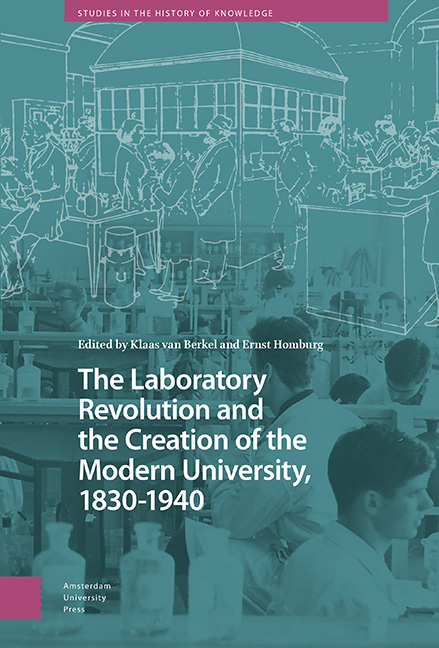4 - Chemistry in Zürich, 1833–1930 : Developing the Teaching-Research Laboratory in the Swiss Context
Published online by Cambridge University Press: 29 November 2023
Summary
Abstract
This essay outlines the emergence of the chemical teaching-research laboratory at the University of Zürich, the Zürich Cantonal School, and the Swiss Federal Polytechnic during the nineteenth century. All three institutions were modelled after their German counterparts, but there were important differences that are reflective of the Swiss national and local cantonal contexts and involved a complex set of dual appointments and shared facilities that were absent at comparable chemical laboratories at German universities. This essay outlines the origins of these complex relationships and shows how this context, including the roles of cantonal and federal support, and the physical constraints created by shared laboratory facilities shaped chemical research and instruction in Zürich.
Keywords: Zürich, university, polytechnic, chemistry, Switzerland
Introduction
Although chemical laboratories certainly existed well before the nineteenth century, part of the Laboratory Revolution entailed a restructuring of the location and purpose of existing chemical laboratories after about 1840. The chemical laboratory moved from privately held spaces to universities, and group research replaced solitary work. Laboratories also became much larger spaces, used as ‘factories’ for the mass production of chemicals and chemists to meet the growing needs of industry. The template for this new kind of laboratory was created largely by Justus Liebig in Giessen, but as Alan Rocke has outlined elsewhere in this volume, the creation of these new spaces for chemistry was by no means inevitable, and Liebig’s success was the result of several contingent factors that happened to coincide during his early tenure in Giessen.
Each new laboratory is the result of specific institutional, political, and personal factors, and if we are to get handle on the broader concept of a ‘Laboratory Revolution’, we need to understand these fine-grained details of the emergence of specific laboratories before we can step back to look at the broader causes and context of the revolution. In the case of chemistry, we have many good studies of the attempts—some successful, some not—to create research laboratories in France, Germany, the United States, and Great Britain, but fewer from elsewhere.
- Type
- Chapter
- Information
- Publisher: Amsterdam University PressPrint publication year: 2023

